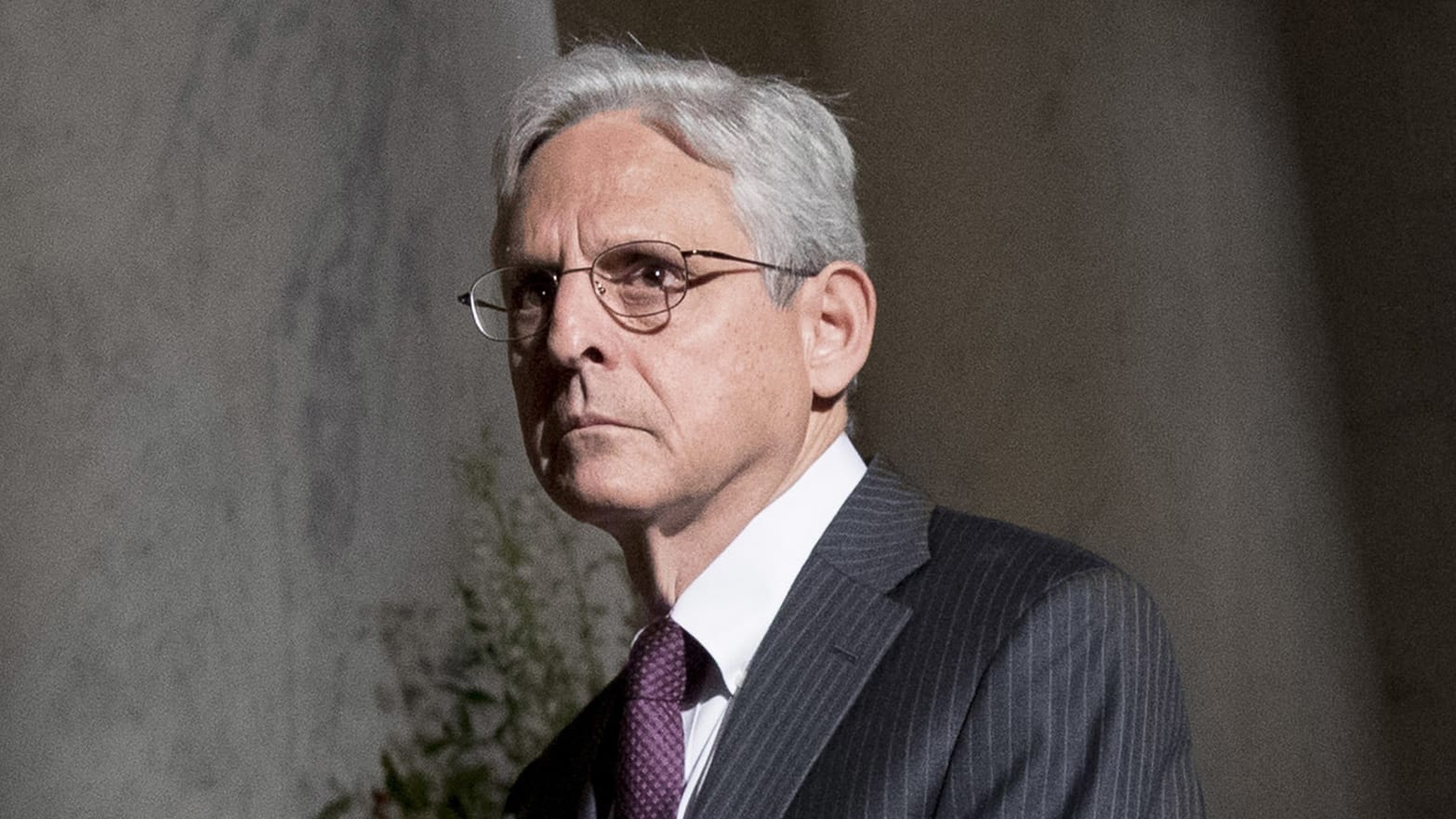Attorney General Merrick Garland boasted on Friday how his office has prosecuted nearly 1,500 Americans for protesting the 2020 election, warning others they may face similar lawfare should they raise any concerns about the administration of the upcoming November election.
Speaking at a press briefing, Garland essentially said the Jan. 6 prosecutions should serve to remind Americans what happens if they raise questions about an election.
“I think our prosecutions have made clear what we think about people who try to interfere with the peaceful transfer of power, which is [an] essential and fundamental element of our democracy. A quibble about whether we have 1,500 or slightly less than 1,500 — but we have way more than 1400 now — prosecutions. We have a substantial number of convictions,” Garland boasted.
“I think that’s shown to everybody how seriously we take an effort to interfere with the peaceful transfer of power the last January 6, the coming January 6, and every January 6 after that,” he continued. “I want to make clear to anybody who is thinking about interfering with that: They can see what we’ve done with respect to the January 6 prosecutions, and [the] Justice Department will continue to protect our democracy.”
Director at Big Data Poll Richard Baris explained in a post on X why Garland’s comments are so alarming.
“This is what 50% of the country heard from Garland. ‘We’re gonna steal this election and if you try to fight us, we’ll put you in prison.’ God this country is totally corrupt,” he wrote.
“DOJ prosecutors and DC judges are warning that the hammer will come down on any American who protests the 2024 election results,” echoed independent journalist Julie Kelly on X after Garland made his press conference statement. “They treat J6ers like mass murderers,” she continued, citing comments from Obama-appointed District Judge Tanya Chutkan “lecturing a J6 protestor convicted of a misdemeanor.”
The DOJ brought the “hammer” down in the wake of the 2020 election, as Garland made clear. The DOJ charged hundreds of protesters — including a “praying grandma” in her 70s — under a federal statute that the Supreme Court later ruled was used in an over-broad capacity.
But American skepticism about our electoral processes, in part, stems from the actions the DOJ has taken, starting with their attempt to criminalize election-related speech.
Under Garland’s watch, the DOJ targeted former President Donald Trump for his speech on Jan. 6 in which he told his supporters who wanted to protest the election to do so “peacefully and patriotically.” As my colleague Matt Kittle explained, those words “became the impetus for charges of ‘insurrection’ and ‘election interference.'”
Garland has also sought to undermine attempts to secure elections, vowing in March to fight “burdensome” and “unnecessary” election security laws like voter ID requirements despite a Pew Research study finding 81 percent of Americans support requiring people to show a “government-issued photo identification” in order to vote.
More recently, the DOJ asked the Supreme Court to “deny” Republicans’ bid “to enforce an Arizona law requiring individuals to prove they’re U.S. citizens when registering and voting in elections,” as my colleague Shawn Fleetwood explained. Currently, voters simply need to check a box on a federal registration form affirming they are a citizen. In a nation overrun with millions of illegal immigrants, we’re relying on the honor system to register voters.
But it’s not just the DOJ’s actions that have led Americans to feel increasing distrust toward election administration.
The Washington, D.C. bar recommended that Trump-era DOJ official Jeffrey Clark be suspended for at least two years because he drafted a letter to Georgia officials in which he said the DOJ “identified significant concerns that may have impacted the outcome of the [2020] election in multiple States, including the State of Georgia.”
Notably, the 2020 election in Georgia was certified, though the State Election Board passed a motion this past May finding Fulton County double-scanned 3,075 ballots. The board did not issue a rule on the 17,852 votes that were, according to a complaint filed by Kevin Moncla and Joseph Rossi, allegedly missing ballot images in the county.
Election meddler Marc Elias, who was recently hired by Vice President Kamala Harris’ presidential campaign, also recently warned in a post on X that questioning election administration could land you in court.
“Here is my message to the GOP: If you try to subvert the election in 2024, you will be sued and you will lose,” he wrote.
It’s the same message being sent in key swing states like Georgia and Nevada.
Fulton County board member Julie Adams voted not to certify the March presidential preference primary after claiming she was denied access to election data such as the qualified voter list, the voter check-in list, and drop-box ballot recap sheets, among other items. Ten days later, the Democrat Party of Georgia sent a letter to the entire Fulton County board warning that, should board members not certify election results, they could face criminal charges.
Nevada Secretary of State Francisco Aguilar and Attorney General Aaron D. Ford filed a petition in July with the state Supreme Court to force Washoe County to certify the results of two recount primary races. Three board members initially chose not to certify the results over allegations of suspicious behavior made during a public comment portion of a board meeting.
The state Supreme Court dismissed the petition as “moot,” though it did signal a similar challenge could be brought by the state should an election not be certified this election cycle.
